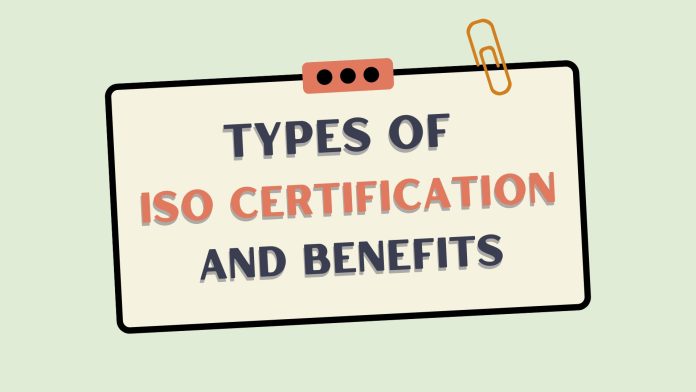As the name indicates, ISO (International Body for Standardization) is an independent international organization that produces international standards such as ISO 9001 and ISO certification 14001, but is not engaged in ISO certification and does not provide ISO certification. The ISO certification procedure is carried out in India by an external certifying authority. In this post, we will look at the ISO certification procedure in further detail. ISO certification promotes the standardization of an organization’s technology.
The Advantages of ISO Certification
- International recognition: ISO accreditation is critical in assisting firms in establishing credibility in their international operations.
- Customer Satisfaction: ISO standards are intended to assist enterprises to improve their customer service while increasing customer satisfaction.
- Government Contract Bidding: Government contract bidding necessitates ISO certification.
- Organizational Efficiency: Obtaining ISO certification enhances your organization’s functional efficiency. ISO certification organizations can help with the creation of SOPs (Standard Operating Procedures) and processes. ISO assists enterprises in properly managing their resources.
- Product Quality: ISO certification assures that your product meets international standards and is less likely to be rejected due to flaws.
- Marketability: ISO certification boosts a company’s reputation and immediately helps with marketing.
What exactly does standard mean?
These are global standards for products, services, and systems that ensure quality, safety, and efficiency. They play an essential role in facilitating trade and establishing confidence. The previously published ISO 22521 International Standard covers almost all technical fields, including food safety, services, agriculture, and health care.
Types of ISO certification
First and foremost, business owners must choose whether the type of ISO certification is necessary. There are several ISO certificates, some of which are mentioned here. If you want to apply one of them you can consult a leading consultant of ISO certification in Lucknow. I think they can assist and guide you.
- ISO 9001: This is a commonly used strategy for creating, implementing, and maintaining a “quality management system” for any business. It applies to every industry, regardless of size or money. The final revision of the standard was published in 2015 and has continued since then.
- ISO14001: This is a step-by-step guide to putting in place an environmental management system (EMS). Policies, methods, plans, practices, and records create the ground rules for how an organization interacts with its surroundings. The ISO 14001 standard provides a framework and advice for any business to create environmental management systems (EMS). The world is now meeting 2015 norms.
- OHSAS18001: This standard outlines the processes required to establish an occupational health and safety management system. Policies, procedures, plans, processes, and records that create health and safety norms comprise it. The 2007 standard is still in effect and applies to all industries.
- ISO 45001: This standard outlines the processes required to establish an occupational health and safety management system. Health and safety norms are determined by policies, techniques, plans, practices risk identification and risk assessments, and records. This standard, issued in 2018, has been accepted by several sectors.
- ISO 27001: ISO 27001 was the most recently updated information security standard in 2013. Describes a management system for maintaining information security and includes particular standards. Organizations that satisfy the criteria after a successful audit might be certified by an authorized certification authority.
- ISO 22000: This standard enables companies participating in the food chain, whether directly or indirectly, to design, develop, manage, maintain, and update FSMSs that assure safe goods and services for their intended use. (FSMS) criteria are specified. This standard, issued in 2018, has been accepted by several sectors.
- ISO50001: It is a voluntary international standard that offers businesses a globally recognized framework for regulating and improving their energy-related performance. This standard addresses energy usage and consumption measurement, documentation, and reporting. It also defines the process of developing and acquiring energy-consuming equipment, as well as other elements influencing an organization’s capacity to monitor and regulate energy efficiency. The most recent exclusive update was in 2011.
- ISO 20000: This standard intends to improve the efficiency of IT service administration in all domains and work processes. This is a critical necessity. Almost every industry, in particular, is reliant on information technology. It has an impact on how you communicate, collaborate, and work. It’s a prerequisite for doing business.
- ISO 31000: This is a risk management programme that describes the fundamentals and safeguards for implementing security measures and risk management in accordance with globally recognized standards. ISO 31000 is critical to your company’s performance since it acts as a guide to assist businesses in reaching their goals, identifying opportunities and challenges, and allocating resources to manage risk.



















